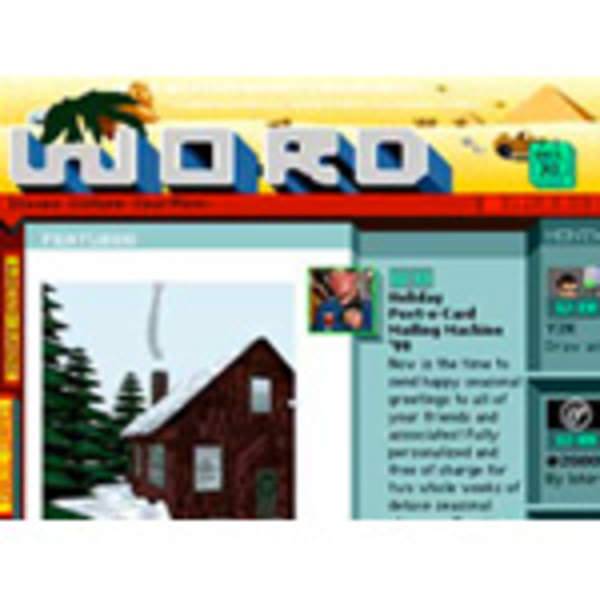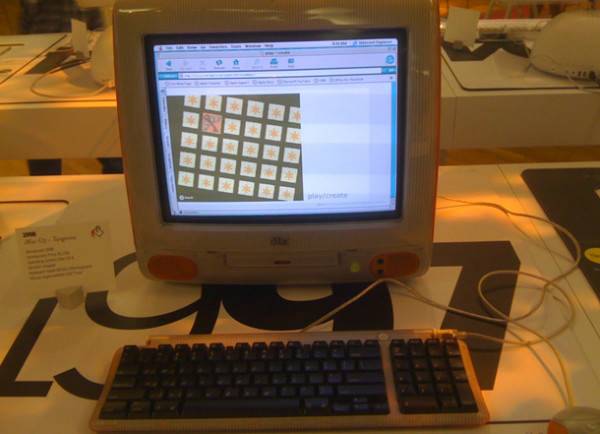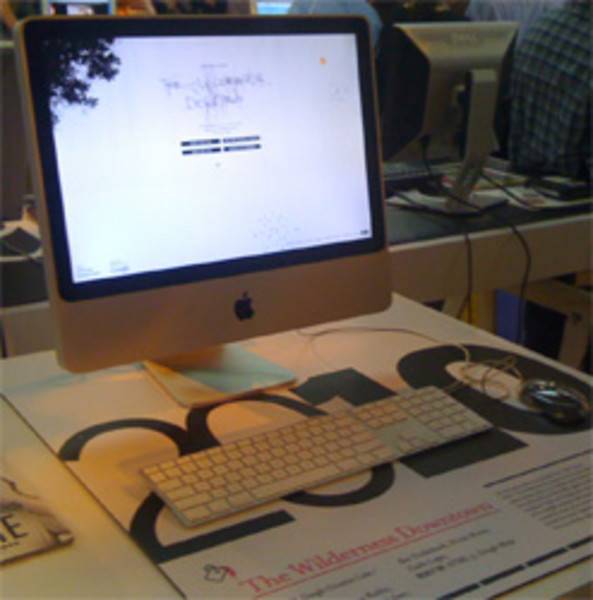One of the highlights of Internet Week New York, the annual Internet festival in NYC, has been the Digital Archaeology exhibit. It charts the evolution of websites and web design over the past 20 years: from the first ever website in 1991, the CERN site by the Web’s inventor Tim Berners-Lee, to the highly interactive 2010 HTML5 music video for Arcade Fire by Google. Each of the 28 websites in the exhibition was displayed on a computer and software of its time, which brought back a lot of memories for this old 1990s webmaster!

I spoke with the exhibition’s curator, Jim Boulton, and Abbie Grotke, the Web Archiving Team Lead from the Library of Congress. We discussed how web design trends have evolved over the years, along with the difficulties of archiving increasingly interactive and social content on modern websites. Indeed, we touched on the possible extinction of websites within the next few years!
Looking back on websites from the mid-1990s, you can clearly see the evolutionary link to many of the sites and apps from this era. For example, Razorfish’s 1995 online art gallery The Blue Dot is an ancestor of Arcade Fire’s Wilderness Downtown video – animation is a feature of both sites. The Blue Dot was one of the very first animated websites, according to Razorfish co-founder Craig Kanarick. Obviously the Arcade Fire site is much more advanced technologically, due to the software and hardware available today.

Another example is the 1995 e-zine Word.com, which can be seen as an ancient relative of the iPad app Flipboard. Word.com was a (very pixilated) multimedia magazine that, according to the exhibition curator Boulton, “bypassed the mainstream media and wrote in the voice of the people.”
Websites Increasingly Difficult to Archive
The problems of archiving websites was highlighted by the very first website, Tim Berners-Lee’s CERN site. The version on display was a copy from 1992, the earliest copy available. The 1991 version no longer exists and no screenshots were made. “The very first website, a historical moment in time, has been lost forever,” lamented Boulton. “I think that sums up where we are with websites in general. It’s such a transient media and so easy to publish, that people think of [websites] as disposable.”
This has become an increasingly common problem, according to Abbie Grotke, Web Archiving Team Lead at the Library of Congress. She noted that a lot of today’s interactive web experiences cannot be archived. Plus things like streaming media aren’t crawlable, unlike static web pages of old.
Grotke’s team collaborates closely with the Internet Archive, the non-profit site that runs the Wayback Machine. But even with their combined resources, the tools for archiving are always a step behind the newest Web technologies.
Will the Website Become Extinct?
So what does that mean for the future of the website?

“In a few year’s time there won’t be such a thing as a website,” claimed Boulton. “With the rise of the social Web, now online experiences are built around the individual rather than around the organization.”
So whereas websites are “destinations that you go to to find information,” according to Boulton, the current era is increasingly about information coming to the individual – who interacts with it on devices like smartphones.
As a Web publisher, I myself cannot see ReadWriteWeb.com as a destination site going away anytime soon. Although certainly it will become more and more important to offer mobile and personalized media experiences to readers.
What do you think, is the website as a media format heading the way of the dinosaur?










